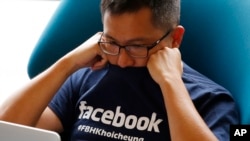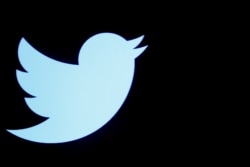After Hong Kong saw one of its biggest protests yet over the weekend, a social media war has broken out between China and U.S. technology companies over how Chinese state-sponsored media is using social media to spread misinformation and false news about the protesters.
On Monday, Twitter and Facebook, which are both blocked in China but are freely available in Hong Kong, removed accounts they said originated in China that characterized the Hong Kong protesters as violent. Twitter said many of the accounts used virtual private networks, or VPNs, to access Twitter.
Twitter said it took down more than 900 accounts that were "deliberately and specifically attempting to sow political discord in Hong Kong." The company said it had evidence the accounts were part of "a coordinated state-backed operation."
"All the accounts have been suspended for a range of violations of our platform manipulation policies," Twitter said in the blog.
Facebook said it had been tipped off by Twitter and had removed accounts and pages "associated with the Chinese government."
The Hong Kong protests have shed light on the chasm between how news about Hong Kong is portrayed inside China and outside.
Silence, then social media campaign
At first, the Chinese government and state-sponsored media made rare mention of the protests over the past months. That switched in the past few weeks.
Where much of the world saw Hong Kong protesters peacefully gathering over the weekend, the top trending item on Weibo, China's version of Twitter, showed a Shanghai tourist allegedly beaten during the same protest, wrote the South China Morning Post. It had more than 500 million views.
Meanwhile, the protest organizers have been using social media to spread the word of events, using encrypted sites such as Telegram as well as Twitter and Facebook.
Banning state-sponsored advertising
Twitter also said it was banning state-sponsored media advertising on its platform after Chinese state media placed ads on Twitter.
Buzzfeed News found 50 ads placed by Chinese state-run outfits on Twitter that portrayed protesters as violent and anti-China. One paid for tweet from China Daily showed a protester with a Molotov cocktail and a U.S. flag.
One observer in Hong Kong called on Twitter to stop accepting ads for state-sponsored media in China.
As the social media battleground continues, all sides will likely keep changing tactics to keep the other side guessing.
Already Twitter said it has seen new accounts created after it began suspending accounts. What's certain is that as the social media battle continues, all sides will likely keep changing tactics to keep the other side guessing.





